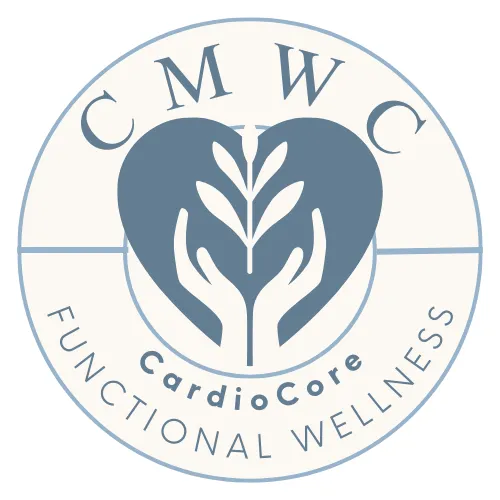Key Components of Functional Medicine
What is Functional Metabolic Medicine?
Functional Metabolic Medicine seeks to uncover the core drivers of chronic illness and it’s connections to insulin resistance and inflammation. It takes a proactive approach focusing on the root causes of chronic diseases, in identifying and addressing these factors in helping individuals manage and overcome these underlying issues. Using my expertise in CardioMetabolic principles and applying them through a Functional Medicine approach, I address the alarming rise in chronic disease in Western society. In contrast, traditional medicine is trained to react to illness, treating acute conditions such as heart attacks, strokes, and infections effectively. There is definitely a need for traditional medicine. Unfortunately traditional medicine has become “a pill for an ill” and people are treated statistically rather than individually. I studied and practiced this for many years but found that preventing disease is more rewarding.For chronic conditions such as hypertension, cardiovascular disease, diabetes, lipid disorders, cancer, obesity, and even long-term effects of infections like COVID-19, functional medicine offers a holistic, personalized approach. Each of us is unique. We are a complex interaction between our genes, our environment and our behavior. Functional medicine identifies the underlying drivers of these chronic conditions, inflammation and insulin resistance, and works to minimize or reverse these risks. By addressing the foundational causes, functional medicine can help manage symptoms like chronic fatigue, chronic pain, hormonal imbalances, sleep issues, mood disorders, neurodegenerative diseases, and weight struggles. This approach emphasizes prevention and reversal of chronic diseases through targeted, science-based interventions. The following outlines the basic principles of Functional Metabolic Medicine:
1. Epigenetic expression of genes
Recognizing that gene expression is influenced by environmental and lifestyle factors, which in turn can affect health outcomes. What you do does effect who you are in establishing health & wellness
2. Interaction with the environment
Recognizing and managing exposure to toxins, pollutants, and other environmental stressors that can impact cardiometabolic health and wellness.
3. Nutrition & Supplements
Emphasizing the importance of nutrition and diet in shaping cardiometabolic health and wellness outcomes.
4. Exercise & Weight Management
Recognizing regular physical activity as a crucial aspect in maintaining cardiometabolic health and wellness. Guiding the principles for efficient and effective exercise regiments while reducing injury risk in optimizing wellness. Exercise and core fitness is one of the most effective means for improving insulin sensitivity and reducing the inflammatory response. Weight management is multifactorial and an individualized approach is needed. GLP-1 Agonists have revolutionized weight loss but are not a long term solution. Underlying inflammatory and metabolic dysfunction frequently is present in obesity.
5. Stress Management & Sleep Hygiene
Acknowledging the impact of chronic stress on cardiometabolic health & wellness, and emphasizing the importance of stress management techniques. Restorative sleep is crucial in maintaining a healthy metabolic balance but conversely metabolic dysfunction is commonly associated with sleep disturbances.
6. Social interactions
Recognizing social connections & relationships as well as spirituality as being essential for maintaining mental and emotional well-being, which in turn directly affects cardiometabolic health and wellness. Social interactions were the basis for our ancestors survival and there is a strong correlation between adverse social interactions and metabolic dysfunction
7. Hormone
Evaluating an individual’s complex hormonal state and the influences it has on their health and wellness. Exploring holistic ways to restore balance and harmony is a fundamental principle in functional medicine. Hormonal dysregulation and the proinflammatory state have a bidirectional relationship, where each can exacerbate the other.
8. Gut microbiome
Recognizing the importance of our gut microbes (intestinal bacteria) and the influence it has on our central core functions. Exploring ways to balance and maintain microbiome homeostasis in relation to many of our body’s critical processes. These include insulin resistance, metabolic functions , the inflammatory & immune response, the central nervous system, the cardiovascular system, as well as its role in the development of autoimmune disease. Traditional medicine is only now recognizing the influences that the microbiome has on disease states. There are an estimated 150,000,000,000 microorganisms in our intestines, far outnumbering by a factor of 10 the 15, 000,000,000 cells in our body.
9.Immune Function
Measuring the body’s immune response to stress, infection and inflammation, including the production of cytokines, namely interleukins, and balancing it through holistic and natural approaches. These cytokines may be both beneficial and harmful, especially if overactivated, producing either a pro inflammatory or anti inflammatory response.
10. Metabolic/Detoxification
Identifying and optimizing the body’s internal processes that sustain life including energy production, nutrient production and waste removal. Methylation pathways refer to a series of biochemical reactions that involve the transfer of methyl (CH3) groups between molecules and are crucial in cellular processes. They are involved in gene expression, detoxification, neurotransmitter synthesis, and cellular maintenance. DNA synthesis and repair is highly dependent on the methylation pathways
11.Health and Wellness
Through a proactive, holistic, nature based strategy, grounded in scientific evidence, our medical expertise will empower you with education, knowledge and insights to navigate the integration of conventional pharmaceutical treatments with your primary care physician. Often, the most effective approach to managing established diseases is a holistic blend of traditional and functional medicine, yielding optimal outcomes.
“We are both health detectives and architects, solving the mysteries of cardiometabolic dysfunction and building a blueprint for wellness .
Building a strong foundation helps us weather the storms of illness & disease, just as a deeply rooted tree stands firm against the fiercest winds”.
